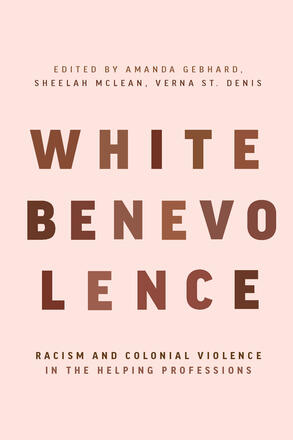
White Benevolence
Racism and Colonial Violence in the Helping Professions
La description
When working with Indigenous people, the helping professions ?education, social work, health care and justice ? reinforce the colonial lie that Indigenous people need saving. In White Benevolence, leading anti-racism scholars reveal the ways in which white settlers working in these institutions shape, defend and uphold institutional racism, even while professing to support Indigenous people. White supremacy shows up in the everyday behaviours, language and assumptions of white professionals who reproduce myths of Indigenous inferiority and deficit, making it clear that institutional racism encompasses not only high-level policies and laws but also the collective enactment by people within these institutions. In this uncompromising and essential collection, the authors argue that white settler social workers, educators, health-care practitioners and criminal justice workers have a responsibility to understand the colonial history of their professions and their complicity in ongoing violence, be it over-policing, school push-out, child apprehension or denial of health care. The answer isn?t cultural awareness training. What?s needed is radical anti-racism, solidarity and a relinquishing of the power of white supremacy.
Reviews
“Interrogating the relation between the ‘helping professions’ and the production of white racial power, this much-needed work exposes the everyday violence that permeates Canada’s social institutions. This book is an essential and timely read for educators and activists, and for social workers and policy makers.”
- Dr. Sunera Thobani, professor, Department of Asian Studies, UBC
“White Benevolence makes a major contribution to understandings of historical and contemporary practices of violence in the helping professions. It interrogates the operationalization of claims to innocence, while being deeply implicated in systems of colonialism and white supremacy. It should be a foundational text for anyone working in and against formal systems of social working, including education, healthcare and social work.”
- AJ Withers, author of Fight To Win: Inside Poor People’s Organizing and Disability Politics and Theory
“White Benevolence is a powerful collection scrutinizing the myriad ways racism in Canada manifests, is sustained, and is perpetuated in our systems of power and in social, political and economic relations. This panoptic collection is a clarion call for Canadians to wake up and dispense, once and for all, with the delusion that Canada is racism free. This is a must-read for students, educators and the general public.”
- Raven Sinclair, professor, writer, filmmaker and editor of Wicihitowin: Aboriginal Social Work in Canada